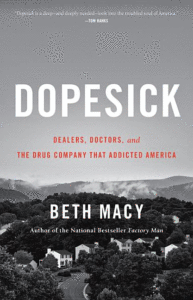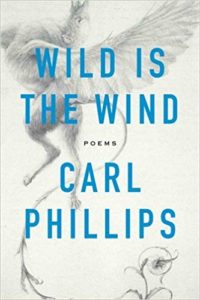
Last night at a ceremony USC’s Bovard Auditorium, as a kick-off to the LA Times Festival of Books, the 39th annual Los Angeles Times Book Prizes were announced.
Aside from the eleven winners below, Terry Tempest Williams received the Robert Kirsch Award for her body of work writing about the land, environmental issues, and a vision of humanity towards all living things.
Congratulations to all the winners!
*
Christopher Isherwood Prize for Autobiographical Prose
Heavy by Kiese Laymon
“The idea of excellence is a wire, sometimes barbed, often electrified, strung through nearly every page of Kiese Laymon’s memoir, Heavy … And part of the wonder of Laymon’s book is his commitment to getting as close to the truth as possible, even when it means asking painful questions about what we owe the people who brought us into this world and, somehow, managed to keep us alive in it … If this book succeeds as a thoughtful and hard-wrought examination of how a black man came into his own in a country determined to prevent that from happening, it’s because of the painstaking manner in which Laymon walks the reader through the various perils and costs of striving … as Laymon’s excellent memoir suggests, a refusal to ask and answer difficult questions about ourselves and the people we love can be lethal.”
–Saeed Jones (The New York Times Book Review)
Current Events
The Line Becomes a River by Francisco Cantú
“Francisco Cantú’s new memoir, The Line Becomes a River, veers away from propaganda and stereotypes and into the wild deserts and mountains, and, especially, the hearts and minds of the people who traverse the increasingly militarized borderlands. No one crosses unscathed, including Mr. Cantú … It’s rare to be given insight into the lives of the men and women who patrol our international borders, especially by a writer as gifted as Mr. Cantú … He becomes afflicted with nightmares of death, of missing bodies in the desert, and of his teeth crumbling into pieces. These passages, which are interspersed with dispatches from his daily patrol, are both beautifully written and terrifying. It’s fascinating to read how Mr. Cantú navigates such difficult physical and mental terrain.”
–Melissa del Bosque (The Wall Street Journal)
Graphic Novel/Comics
On a Sunbeam by Tillie Walden
“With On a Sunbeam, Walden has created a science-fiction universe that is about women, queer love, old buildings, and big trees. It may piss off science-fiction purists… The most endearing aspect of On a Sunbeam is the confidence the narrative has in the world it exists within. The fish-shaped spaceship becomes a silent character, its face seemingly straining as it flies. Walden doesn’t create fake scientific-sounding explanations for why the ship is shaped this way—it just is … Walden creates the intoxicating effect of a universe as mysterious as our real one.”
–Rowan Hisayo Buchanan (The Atlantic)
Biography
Frederick Douglass: Prophet of Freedom by David W. Blight
“David Blight has written the definitive biography of Frederick Douglass. With extraordinary detail he illuminates the complexities of Douglass’s life and career and paints a powerful portrait of one of the most important American voices of the 19th century … Blight is masterful in handling this material. In these moments, the pace of this big book picks up; the details pull you in; and if only just for a moment, the larger-than-life image dips and we see the man.”
–Eddie S. Glaude Jr. (The Boston Globe)
Art Seidenbaum Award for First Fiction
Heads of Colored People by Nafissa Thompson-Spires
“Clever, cruel, hilarious, heartbreaking, and at times simply ingenious, Thompson-Spires’s experimental collection poses a simple, yet obviously not-simple, question: what does it mean to be a black American in this day and age? … Thompson-Spires’s metafictional satires, oriented around questions of blackness, join a particular tradition of African-American fiction, recalling the sardonic absurdism of Everett’s Erasure and Paul Beatty’s The Sellout, among others … Thompson-Spires, thankfully, depicts a wide range of people, not seeking either overwhelmingly positive or negative images of a race but capturing diversity—reality—in much of its multifarious beauty and terror … The real heads, of course, as this brilliant collection of word paintings displays, can be on anybody’s bodies.”
–Gabrielle Bellot (The Los Angeles Review of Books)
History
Travelers in the Third Reich: The Rise of Fascism: 1919-1945 by Julia Boyd
“Boyd’s book distinguishes itself not only for the breadth of its investigation but also for the palpable tone of frustration that runs throughout. Historians are professionally wary of hindsight, and Boyd never blames her subjects for not knowing the future. But even so, her moral outrage is often obvious … The final chapters of Boyd’s book take the story past the point of no return, into the war-days and their ruinous aftermath … readers will likely share Boyd’s quiet outrage that more Germans didn’t see—or weren’t willing to admit—what was happening right in front of their eyes.”
–Steve Donoghue (The Christian Science Monitor)
Science & Technology

Dopesick: Dealers, Doctors and the Drug Company that Addicted America by Beth Macy
“…a masterwork of narrative journalism, interlacing stories of communities in crisis with dark histories of corporate greed and regulatory indifference … The further Macy wades into the wreckage of addiction, the more damning her indictment becomes … Macy introduces so many remarkable people that, midway through Dopesick, readers may find it challenging to keep track of them. (Imagine the writer as the literary equivalent of a triage doctor, with more patients to stabilize than she can linger on.) Taken as a whole, however, this gripping book is a feat of reporting, research and synthesis.”
–Jessica Bruder (The New York Times Book Review)
Mystery/Thriller
My Sister the Serial Killer by Oyinkan Braithwaite
“Oyinkan Braithwaite’s rich, dark debut about Korede, a dutiful Nigerian nurse, and her sociopathic younger sister is more nuanced than its title might suggest … Though this isn’t a whodunit, My Sister, The Serial Killer is a riveting story with a handful of well-timed twists, mixed with laugh-out loud observations about family, co-workers, and corrupt cops. Braithwaite doesn’t mock the murders as comic fodder, and that’s just one of the unexpected pleasures of her quirky novel. What could have been a series of grisly murders and dead-boyfriend punch lines is instead a clever, affecting examination of siblings bound by a secret with a body count.”
–Renée Graham (The Boston Globe)
Young Adult Literature
The Poet X by Elizabeth Acevedo
“While struggles with faith, family, and self-acceptance are not unique teenage experiences, it is their presentation through the lens of Xiomara’s Afro-Latina heritage that makes her story a startling standout. The balance of humor and emotion with which her thoughts are expressed is charming and engaging. Acevedo has elevated the adolescent narrative; despite the age of her protagonist, she has successfully addressed themes of sexism, sexuality, and Christianity while providing a point of reference for Latinx readers searching for themselves in literature and life.”
–Luria Freeman (Entertainment Weekly)
Poetry

Wild is the Wind by Carl Phillips
“…the book features 35 poems that counterbalance love and fear, memory and the mirage of history, despair and the willingness to hope for ideals—loyalty, wholeness, honesty. The writing dazzles with transcendent metaphors, complex connections and linguistic flourishes … pain, indifference, torn trust and permission. Other emotions and factors shape this rich panoply, which consistently challenges readers without providing easy resolution.”
–Elizabeth Lund (The Washington Post)
Fiction
The Great Believers by Rebecca Makkai
“Makkai’s writing isn’t the kind that calls attention to itself, allowing the people, emotions, personal incidents and public occurrences of her book to take shape with the force of urgency and the authentic, the grievousness of deceit—by lovers, by families, by hope—and the generosity of romance, sorrow, growth and wonder. She unleashes a mathematics as compelling as her attention to the contradictions within personalities … She packs her deft array of characters full of surprises that can burst into narrative drama or show their hands gradually in self-revelation, and reconciliation. There is no question that love, no matter how messy or maligned, holds its own, even longer than the plenitude of angers Makkai painfully details and ignites.”
–Celia McGee (The National Book Review)
If you buy books linked on our site, Lit Hub may earn a commission from Bookshop.org, whose fees support independent bookstores.

